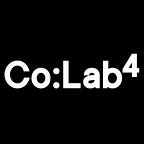Over the last 300 years, one wave after another of technological advancement has impacted our lives.
The first industrial revolution saw us leverage the emergence of rail road’s and steam engines, the second industrial revolution brought new forms of production through manufacturing assembly lines and the application of electricity and the third industrial revolution brought computers and the internet.
….then what is The Fourth Industrial Revolution?
The interplay between rapidly emerging technologies such as global internet, artificial intelligence, bio-med, automation, changing social and community expectations and shifts in our economy is disrupting and redefining every industry, organisation and our society at large.
At the same time, the interconnectedness of the global community through the world wide web, connected machines & smart sensors, travel, energy pipelines, financial systems, geopolitics, and our environment are highlighting that a number of the major challenges and problems we face today are by their very essence global in nature.
To respond to this accelerating change the core foundations of our society are being challenged.
For the last few decades in the western world, the prevailing approach to leadership has focussed on meeting the needs of oneself or an organisation or in economic terms — maximising utility or self-interest, optimising capital and maximising shareholder returns.
……..and how is this different to the previous shifts?
We increasingly recognise given the convergence between the physical and digital worlds, the interconnectedness of our society and the inability to “control” the pace, scope and nature of change we are beginning to shift to more human styles of leadership focussed on “purpose”, leading and enabling through others and solving problems at a system and community level.
To respond to this, management is in the process of being reframed from the more traditional approaches centered around control & command, functional silos, efficiency and quantitative measurement such as Key Performance Indicators (KPI’s) that have dominated our thinking for the last few decades to new entrepreneurial forms of management that can accommodate higher levels of uncertainty and unleash human potential.
New strategic management frameworks are emerging including Eric Ries — The Lean Start-Up, Prof. Rita Gunther McGrath and Prof. Ian McMillan’s — Discovery-Driven Growth and Alexander Osterwalder’s — Business Model Canvas.
….and why should you care?
From a personal perspective, this new environment requires everyone to actively update their core skill set.
Firstly by learning and practicing to embrace ambiguity, solve complex problems, adopt a system based thinking, work and collaborate in teams and most importantly develop and foster empathy to build partnerships and communities.
Whether it is the need to:
bring together a cognitively diverse team from a broad range of disciplines such as STEM and the Arts & Humanities to solve a business problem, or
whether it is the need to see the world from a particular customer and cultural perspective to embark on strategies to enter new markets, or
whether it is the need to engage broadly across the community to bring together system thinking and solve wicked problems
empathy, humility, a growth mindset and a capacity to harness a divergent range of perspectives is central to this emerging narrative.
In this future, you are likely to hold numerous jobs and be required to constantly develop new skills over your working life. #lifelonglearning
Today technology is increasingly being used to automate processes across all industries and the future of work will be a combination of people & machines.
This disruption and many others yet to emerge will have profound implications for jobs and our society at large.
Understanding the changes coming is critical in order to prepare ourselves and be “future fit”.
Yet machines, algorithms and technology cannot do everything ……
Over the last few Centuries, Human ingenuity and problem-solving and the embracement of the scientific method have brought electricity, telephone, modern public library, radio, penicillin, nuclear fusion, television, space travel, genetic engineering, artificial intelligence, and the world wide web.
Unfortunately, all these technology advancements don’t instruct us on the type of society we want to shape and ultimately what it is to be human?
These accelerating changes will mean that your career will be less shaped by what you studied but your mindset and attitude, and new learning you embark on.
We would like to ask you a series of questions about your future:
Do you have a personal learning plan for 2019?
Are you actively preparing for the future you want?
Are you curious and willing to bring together insights from a broad array of perspectives ….. such as philosophy, art, humanities and also STEM?
What does future of work mean to you?
The opportunities for all are limitless but we have to step up to shape our Future.
